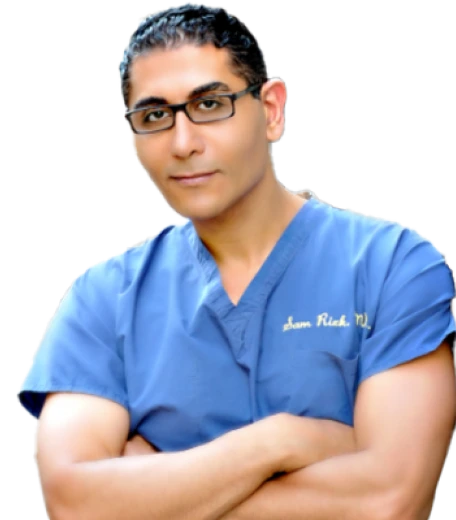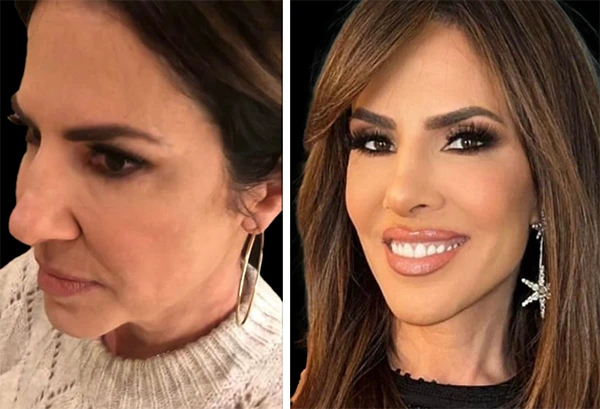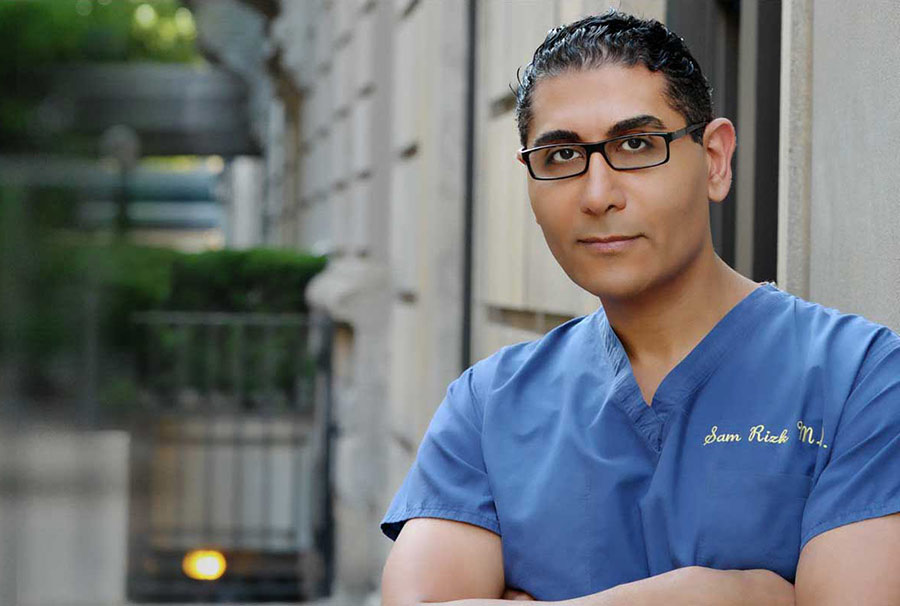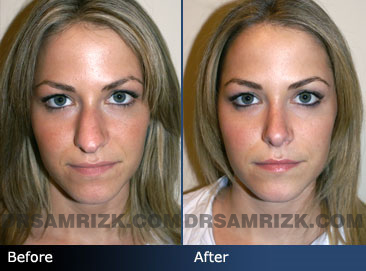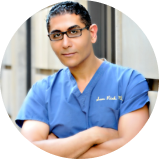If you are experiencing difficulty breathing through your nose, it’s important to seek an evaluation with an expert such as New York City facial plastic surgeon Sam Rizk, M.D., because there are numerous possible causes. It could be a deviated septum, nasal polyps, enlarged turbinates, or a result of several other issues.
The first step toward breathing better is to find out the exact cause of your troubles. If the diagnosis is wrong, the treatment won’t work. This is why booking an expert evaluation is so important.
Are you suffering from nasal breathing problems due to a deviated septum?
A deviated septum is a deformity of the septum, which is the wall of cartilage tissue that divides the nose into the left and right sides. If it is bent, it can block breathing through the nose. It may also cause snoring or pain and interfere with your sense of smell and taste. More importantly, not all deviated septums will cause trouble breathing or other symptoms. Some people may be born with a deviated septum, but it can also be caused by trauma to the nose.
Rizk Rx: Dr. Rizk will evaluate your nose to see if a deviated septum is responsible for your breathing issues. If it is, he may suggest a surgery called a septoplasty. During a septoplasty, Dr. Rizk makes incisions within the nasal cavity to expose the underlying tissues at which time he may excise or thin the cartilage to straighten the septum. This is a functional procedure, not a cosmetic one. Even though rhinoplasty or nose shaping surgery to improve the appearance of your nose can be done at the same time. Discuss any aesthetic concerns with Dr. Rizk during your deviated septum consultation to see if it makes sense to perform the procedures simultaneously.
Are you having trouble breathing through your nose because of enlarged turbinates?
These are small bony structures covered by mucous membranes in the nasal cavity. Their job is to clean, warm, and moisten air as it moves from your nose to your lungs. This is a big, important job. If these structures become enlarged, they may cause breathing trouble, snoring, sleep apnea, and/ sinus infections.
Rizk Rx: Dr. Rizk is experienced in treating such enlarged turbinates. First, he will perform a thorough analysis to see which, if any, of these structures is causing the breathing problems. Treatment may include trying over-the-counter or prescription nasal sprays and/or oral medication as a first step. Surgery may be needed if these interventions do not do the trick. The surgery is designed to reduce the size of the turbinate without compromising its natural function. Dr. Rizk uses a 3D endoscope to better visualize the turbinate and nasal cavity. He will craft an incision in the mucosal lining of the turbinate, and then remove any excess bone and tissue from below. Sometimes there is no cutting necessary. Some turbinates can be reduced using heat or radiofrequency energy. Follow Dr. Rizk’s instructions carefully to avoid any complications after your surgery.
Nasal polyps: Is that why you can’t breathe through your nose?
Nasal polyps, also known as nose polyps, are abnormal tissue growths that can be found within the sinus cavities and/or nasal passages. In some cases, these growths remain small enough that they do not cause any problems. However, when they become enlarged or grow in clusters they may block the nasal passages and cause a variety of problems. In severe cases, nose polyps may even result in obstructive sleep apnea, as the polyps can temporarily block the airways while lying down at night. Symptoms include a blocked nose, difficulty breathing through the nose, snoring, a runny nose, a change in the sense of taste and/or smell, and post-nasal drip.
Rizk Rx: A thorough evaluation is needed to confirm the presence of nasal polyps. Sometimes a biopsy will be ordered to rule out cancer. The first-line treatment is usually steroid nasal sprays to reduce inflammation and shrink the polyps. A course of oral steroids may also be needed. Keep in touch with Dr. Rizk and schedule follow-up appointments to see if medication on its own is enough.
The next step if steroids don’t improve breathing through your nose is endoscopic sinus surgery. During the procedure, Dr. Rizk uses a high-definition endoscope, which consists of a small flexible tube and a tiny camera, to gain a clear view of the internal anatomy of the nose and locate the polyps. Surgical instruments are used to remove polyps. It is an outpatient procedure that leaves no external scars.
During your recovery period, you will be given specific instructions to follow to reduce the risk of complications. Follow Dr. Rizk’s instructions carefully before and after your surgery to maximize your chances of a successful outcome.
Is your nose breathing problem caused by your adenoids?
Adenoids are masses of lymphoid tissue in the very back of the nose. Large or inflamed adenoids may cause trouble breathing through the nose.
Rizk Rx: Adenoid surgery is more common in children, but it can also be performed in adults. Dr. Rizk will conduct a thorough examination and discuss his findings and plan of action with you during your consultation. It may include medications such as steroids to shrink the adenoids with or without surgery.
Other Causes
Other causes of breathing difficulty may not be related to any structures in your nose. Chronic sinusitis or infection of the sinuses, allergies, overuse of nose sprays, and/or colds or flu can all cause problems breathing through your nose. If any of these are responsible for your breathing difficulty, Dr. Rizk will recommend home remedies and/or medications to help you breathe better through your nose. For example, if you have sinus pain, Dr. Rizk often suggests using a warm compress to help keep the nasal tissues moist.
The first step toward breathing better is to schedule your consultation with Dr. Rizk to make a definitive and differential diagnosis of the precise cause of your nose breathing problems. Located in NYC, he has been treating patients with nasal breathing difficulty, with success, for many years.
Remember the diagnosis is what guides the treatment options. Seeking an expert evaluation upfront is the best and only way to make sure that your diagnosis is correct. Following Dr. Rizk’s instructions and advice carefully will result in the best possible outcome in the shortest possible time.

